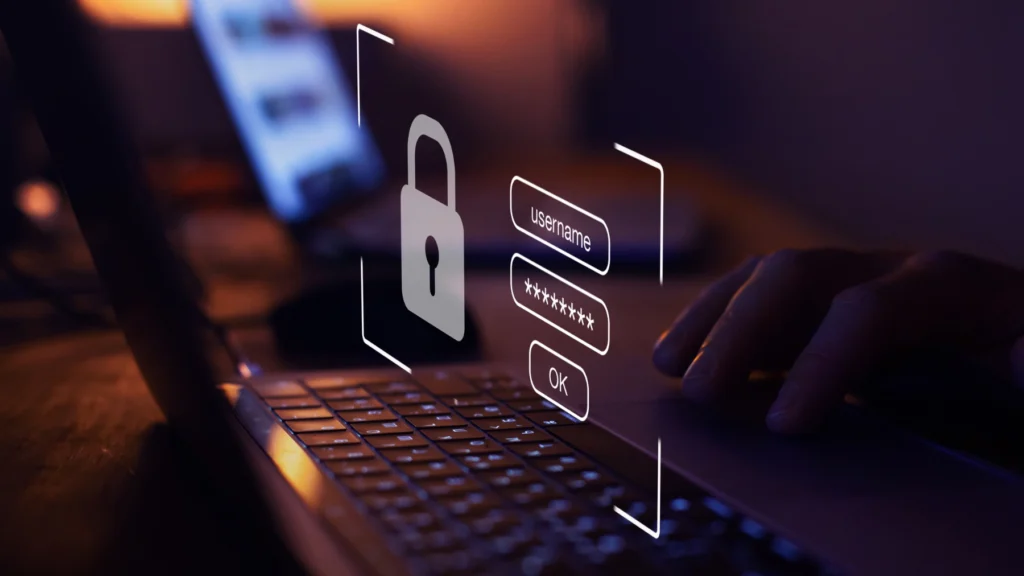Every retail business today, including yours, relies on technology. The WiFi your team needs, the point of sale systems, and the CCTV and access control systems are some of the most critical and obvious examples.
When something goes wrong with your tech, you often won’t know until it's too late. A single missed security patch or a weak password on an access point can be all it takes to shut down your network or interrupt sales. When your business spans multiple stores or locations, those risks multiply fast.
That’s why regular IT security assessments are an essential part of protecting your operations, customers, and reputation in the modern retail world.
Why Regular IT Security Assessments Matter
IT security assessments help you identify your business's blind spots and weaknesses early. Just one good evaluation will give you the following:
- A clear picture of your current security posture, including weak passwords, outdated devices, or unprotected network segments.
- Patches to vulnerabilities before hackers, system errors, or power failures exploit them.
- Most importantly: Peace of mind.
An IT assessment is a health check for your entire digital ecosystem. For growing retail brands, it’s one of the smartest, most cost-effective ways to protect both productivity and profit.
What an IT Security Assessment Covers
An IT security assessment is a deep, structured review of every system that keeps your business running, from your front desk WiFi to your back-office servers.
Specifically, a professional assessment covers six main areas:
- WiFi and Network Infrastructure. Your network is the backbone of your operation. Assessments check for open ports, outdated routers, weak passwords, and insecure guest networks.
- POS and Payment Systems. Cash registers and digital kiosks are common entry points for cybercriminals. Your assessment will confirm that these systems are isolated, up-to-date, and fully compliant with PCI DSS standards, ensuring the security of your customers' payment data.
- CCTV, Access Control, and Smart Devices. Physical security systems often run on the same network as your business systems, which means unsecured cameras or door controllers can become digital gateways for hackers. Assessments close these gaps.
- Endpoints and Employee Devices. Every device or workstation connected to your network can be a risk if it’s unpatched or running outdated software. Your assessment will configure antivirus protection, encryption, and user permissions.
- Data Backup and Recovery Systems. Assessments verify that your backup systems are running on schedule, properly encrypted, and can be restored as needed.
- Cybersecurity Policies and Compliance Readiness. Finally, the assessment reviews your policies (e.g., password management, access protocols, and user training) to ensure your team isn’t unintentionally creating risks.
The result is a clear, prioritized report of what’s working, what’s vulnerable, and what to fix first. You can then stop guessing and start securing.
Common Hidden Risks in Retail and Hospitality
In retail and hospitality, technology runs through every square foot of your business. Nearly every device is interconnected in some way, and that’s precisely where the hidden risks listed below creep in.
Examples of Physical Risks
- Unsecured CCTV and Access Control Systems. Most modern camera recorders and smart locks connect through the same network as your sales systems. If a camera uses a default password or an unprotected connection, it’s an open door for intruders.
- Poorly Segmented WiFi Networks. When staff, guests, and payment systems all share the same WiFi network, it only takes one infected device to compromise everything else. Proper network segmentation ensures your customers are isolated from your POS or internal operations.
- Forgotten Hardware and Default Configurations. Old routers, unmanaged switches, or devices with default logins can get overlooked and become easy targets.
Examples of Digital Risks
- Outdated Software and Missed Security Patches. POS terminals and PCs running obsolete software are vulnerable to malware. Cybercriminals constantly exploit such vulnerabilities.
- Weak Password Practices. Shared accounts and simple passwords, like “store123,” still exist, and hackers are aware of this. These credentials can unlock far more than just one store’s system.
- No Centralized Monitoring or Alerting. Without real-time visibility, you may never know a breach has occurred until systems slow down or customer complaints roll in.
The Real Cost of Downtime and Data Loss
When a system goes down or a breach occurs in retail and hospitality, every minute of downtime incurs a direct cost in terms of sales, staff hours, and customer trust.
Lost Revenue in Real Time
A malfunctioning point of sale system means customers can’t pay. A broken WiFi network means your booking system freezes. Even a few hours of outage can translate to thousands in lost transactions.
Staff Productivity Drops
When systems stop working, your team shifts from serving customers to troubleshooting. It’s an invisible but expensive loss of focus.
Compliance Fines and Insurance Implications
If your customer data (like credit card info or personal records) is compromised, you can face thousands in fines per incident, higher insurance premiums, and loss of payment processing privileges.
Reputation Damage That Outlasts the Outage
A security breach or prolonged downtime can lead to negative press, online reviews, and strained relationships with partners or vendors.
How Assessments Keep You Compliant and Audit-Ready
IT security assessments make sure you stay ahead of requirements instead of scrambling to catch up when auditors or regulators come knocking:
- PCI DSS (Payment Card Industry Data Security Standard). Retailers and hospitality operators who handle credit card payments are required to meet PCI DSS standards. These include encrypting transactions, securing wireless networks, and controlling access to customer data.
- Privacy and Data Protection Laws. State and federal regulations increasingly hold businesses accountable for protecting customer information.
- Insurance and Risk Management Requirements. Many cyber liability insurers now require documented evidence of risk assessments and patch management as a condition for issuing or renewing policies.
- Internal and Vendor Audits. A professional assessment provides a ready-to-share report that demonstrates your due diligence and risk management across all your locations.
Simply put: a proper IT security assessment is your “proof of care,” and auditors, insurers, and customers will be looking for it.
How Often to Get an Assessment
Every new year brings new staff, devices, locations, and threats. That’s why most experts recommend an IT assessment at least once per year, or immediately after any of the following:
- A system upgrade or network expansion
- A new location opening or major remodel
- A data breach, phishing attempt, or unexplained outage
- A compliance audit or insurance policy renewal
A professional assessment from a trusted managed service provider like CGS typically includes:
- Discovery and Mapping. The process begins by identifying all connected systems across your business to map your entire IT environment.
- Vulnerability Scanning. Next, technicians test your systems for weaknesses, such as unpatched software, misconfigured networks, and insecure passwords.
- Risk Scoring and Reporting. Each risk is assigned a priority level to help you understand what needs to be addressed first.
- Recommendations. Your report outlines actionable next steps, budget-friendly fixes, and opportunities for optimization.
- Optional Ongoing Monitoring. Some businesses opt to convert their assessment into an ongoing service, featuring 24/7 monitoring and regular rechecks to maintain airtight security.
The results from IT security assessments are often eye-opening. Even tech-savvy businesses discover small misconfigurations or neglected devices that could lead to significant issues later on. And because the process is proactive, it’s far less stressful (and far more affordable) than reacting to an incident after the fact.
Is Your IT Up to Speed?
The most dangerous problems in your network are the ones you haven’t noticed yet. An IT security assessment helps you identify risks before they result in financial losses, downtime, or compromised customer trust. It’s the simplest, most effective way to get peace of mind that your operations are protected 24/7.
At Carolina Georgia Sound (CGS), we help retail and hospitality businesses identify vulnerabilities, strengthen defenses, and future-proof their technology through proactive assessments and managed support.
Let’s assess where your systems stand and how to strengthen them. Contact the CGS team to get started.

